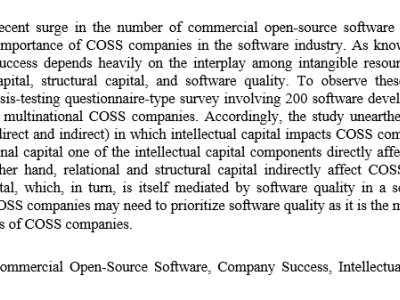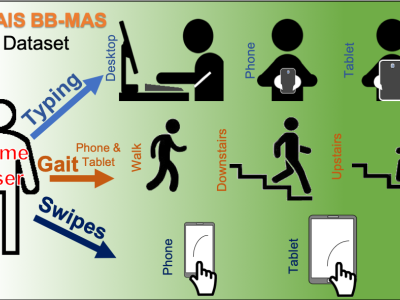Survey Data

- Citation Author(s):
- Submitted by:
- Shimels Garomssa
- Last updated:
- DOI:
- 10.21227/43q5-2a84
 253 views
253 views
- Categories:
- Keywords:
Abstract
Normal 0 false false false EN-IN X-NONE X-NONE /* Style Definitions */ table.MsoNormalTable {mso-style-name:"Table Normal"; mso-tstyle-rowband-size:0; mso-tstyle-colband-size:0; mso-style-noshow:yes; mso-style-priority:99; mso-style-parent:""; mso-padding-alt:0cm 5.4pt 0cm 5.4pt; mso-para-margin:0cm; mso-pagination:widow-orphan; font-size:10.0pt; font-family:"Times New Roman",serif; mso-ansi-language:EN-IN; mso-fareast-language:EN-IN;} Commercial open-source software (COSS) companies have gained prominence in the software industry in recent years. Unlike proprietary software companies using closed-source development methodology, COSS companies collaborate with the open-source software (OSS) community to conduct software development and customer support activities. Thus, the use of a hybrid business model has made COSS companies an affordable alternative to proprietary software. However, despite the growing importance of COSS companies, there is a lack of comprehensive studies on a group of COSS companies. Moreover, evaluating the success of COSS companies is constrained by the absence of a success model. Therefore, this study adapts DeLone and McLean's updated information systems (IS) success model to assess the success of COSS companies of various sizes, types, and popularity. An expert-validated quantitative survey was used to collect data from software development professionals, experts, and users. The results revealed that the success of COSS companies is significantly affected by user satisfaction. By contrast, the influence of software use on COSS companies' success is insignificant. Furthermore, both product property and software quality positively affect software use and user satisfaction.
Instructions:
Survey Instrument used for data collection.






